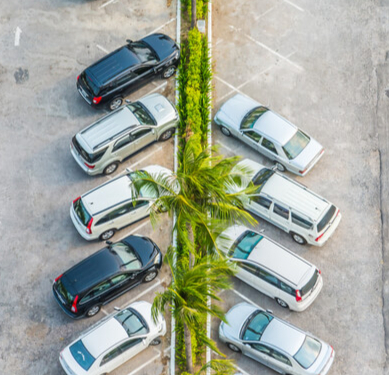
How Your Parking Habits Could Be Raising Your Insurance Rates

by Erin Anderson
It might not be something you think about when you pull into a spot, but where and how you park your car could be quietly nudging your insurance premiums higher. Insurers look at more than just your driving record — habits like regular street parking or consistently choosing high-risk areas can have long-term consequences on what you pay.
The good news? With a few mindful changes, you can help protect your vehicle and possibly even lower your rates over time.
Parking Location Plays a Bigger Role Than You Think
When you’re filling out an insurance quote, one of the first questions they ask is where your car is parked overnight. Why? Because parking in a garage versus on the street impacts your risk profile.
Street parking — especially in urban areas — tends to come with more claims: break-ins, theft, vandalism, and even accidental damage from other vehicles squeezing past. If your car is parked on a busy street or in a neighborhood with high crime rates, insurers may factor that in as a higher likelihood of filing a claim.
What to do: If possible, prioritize off-street parking. Even a rented garage spot or secure lot can make a difference — and some insurance companies will give you a small discount for it.
Regular Dings and Fender Benders Add Up
Parallel parking in tight spots? Backing into crowded lots? Over time, minor accidents — even ones you don’t claim — can create a pattern. Insurance companies keep track of these, and multiple small incidents can still impact your rate, especially if they're avoidable.
Some telematics-based insurance plans even monitor how often and where you park as part of their behavior tracking.
Smart fix: Practice parking habits that reduce risk. Back into spots when it’s safe to do so (it gives you better visibility when leaving), and avoid cramming into too-tight spaces just for convenience.
Neighborhood Patterns Matter
Even if you’re not getting into accidents, insurers look at data from your ZIP code. If your area has a high rate of theft, vandalism, or accident claims, your premium might go up — even if you’ve never filed a claim yourself.
The way this connects to parking? If your car is always in the open, it’s more exposed to the risks that come with that neighborhood.
Try this instead: If relocating your car isn’t an option, investing in added anti-theft measures (like a steering wheel lock or GPS tracker) and letting your insurer know can sometimes qualify you for a discount.
Parking at Work or School Counts, Too
Daytime parking habits are also part of the picture. Leaving your car unattended for hours in a large lot (especially without security cameras or fencing) increases the risk of damage or theft. In areas with lots of foot traffic or student drivers, bump-and-run accidents happen more than you might think.
Consider this: If your workplace offers secure or employee-only lots, take advantage. Otherwise, park in well-lit, less congested sections — even if it means a slightly longer walk.
The Bottom Line
It’s easy to overlook your parking habits — but they’re more than just a matter of convenience. Where and how you park affects your vehicle’s safety and, over time, your insurance premiums.
If your current habits lean more toward convenience than caution, now might be a good time to make a shift. And while you're at it, take a few minutes to review your current policy or compare quotes. You might find that safer parking options could help you qualify for lower rates — or at least keep yours from creeping up.